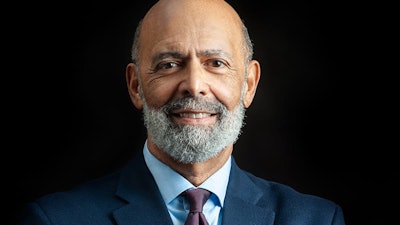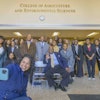Historically Black Colleges and Universities (HBCU) have been effective in developing talent yet underfunded for decades. That was the sentiments of a group of panelists who gathered virtually on Wednesday for a panel titled, “HBCUs: The Path to Prosperity” hosted by Bloomberg.
“HBCUs have been in the spotlight over the past year, as to racial reckoning, prompted by George Floyd's murder continues to reverberate," said Shartia Brantley, Bloomberg’s deputy New York bureau chief and moderator of the first panel. "Some of these institutions have received huge donations recently. However, these gifts do not make up for the systemic underfunding these institutions have endured for decades."  Dr. Michael L. Lomax
Dr. Michael L. Lomax
According to Dr. Michael L. Lomax, president and CEO of the United Negro College Fund(UNCF), HBCUs produce about 50 percent of Black teachers, 70 percent of Black doctors and dentists and 80 percent of Black judges. These institutions have lifted many families from low-income to middle class. The annual income for students who have graduated from an HBCU within the last 10 years is $71,000. He said that it’s vital for businesses and the government to continue investing in these schools. He expressed that more skilled workers are needed in every industry as we slowly emerge from the pandemic.
“The call to action today is for you to learn more about HBCUs. And then for each of us to consider opportunities to further engage, partner with, invest in and co-produce with HBCUs a stronger economy with more diverse and equitable participation,” said Lomax. “HBCUs can be extraordinary resources and collaborators with American business today and in the future.”
Panelists noted that the pandemic has taken a bit hit on HBCU enrollment numbers and employment after graduation. According to a report published by Bloomberg, Goldman Sachs Group Inc. only offered three permanent positions to HBCU graduates last year. The hiring of HBCU graduates also declined inside JPMorgan, while the number of Black grads in general grew.
Lomax stressed that the talent has always been there. Opportunity, he said, is the challenge.
“I think that there's now an awareness, certainly in the financial industry, that the talent is there," he said. "It may need some additional refining and opportunities and experience that you get from internships and mentorships, but the talent is there and there's no excuse for not achieving your goals."





















